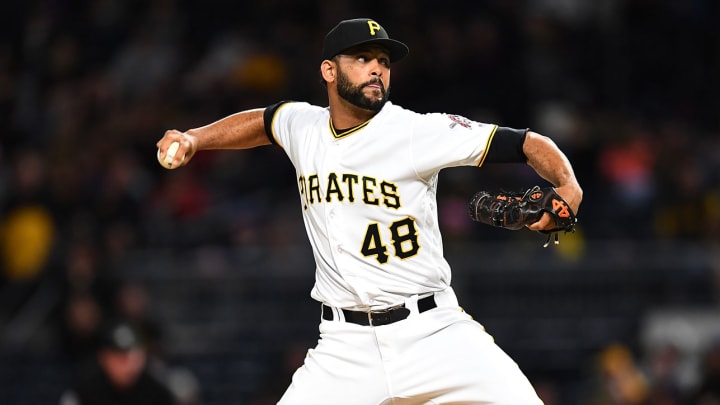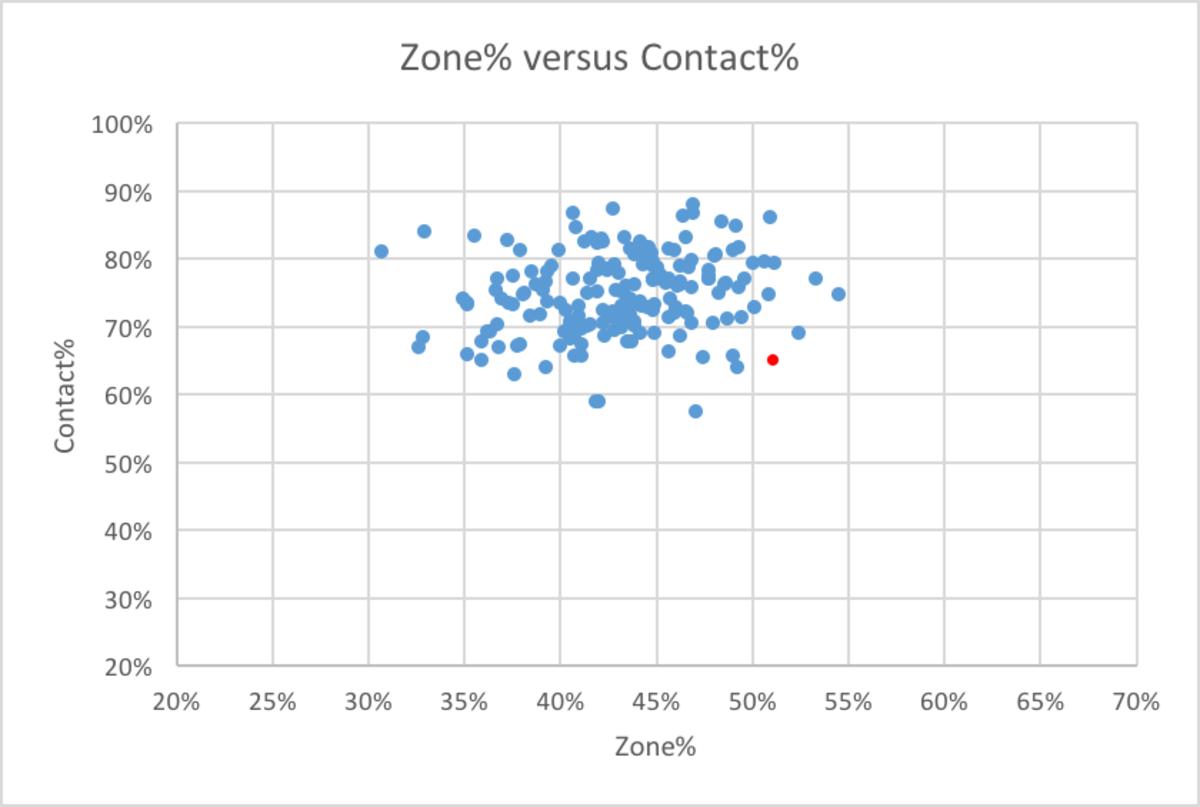Pirates Pitcher Richard Rodriguez Is The Best Reliever You Don't Know

A few weeks ago in Milwaukee, the stud reliever took the mound in the late innings of a game between the Pirates and the Brewers. He’d been enjoying a breakout season so far, sitting near the top of the strikeout-rate leaderboard, and on this particular day, he was at his best—K’ing six batters in two innings of work, five of them swinging.
It wasn’t Josh Hader. It was Pittsburgh’s Richard Rodriguez, who’s quietly been one of the most effective relievers in baseball this year.
The 28-year-old made his major-league debut with Baltimore as a September call-up last year, and after allowing nine runs in five innings, he was promptly sent back down. It’s never good to be demoted, but it’s especially bad when a club out of the playoff race decides you’re not worth a spot on the 40-man roster. The Pirates picked him up as a minor-league free agent this winter, and so far, they’ve been handsomely rewarded. Rodriguez has been striking out more guys than anyone outside a tiny handful of other relievers, about 43% of the batters he’s faced, and he’s showcased meticulous control. In 17.2 innings of work, Rodriguez has walked just two—both of which were intentional—leaving him with a strikeout-walk ratio of 15.0, the third-highest in baseball.
All the normal caveats apply here (that body of work is still a small sample size, all of this stuff can change for relievers in an instant, and so on) but what’s most interesting about Rodriguez isn’t necessarily what he’s doing, but how he’s doing it. Earlier this month, manager Clint Hurdle told the Pittsburgh Tribune-Review that Rodriguez had graded “very highly” by the team’s analysts, but a cursory read of his profile doesn’t show off anything too appealing. He doesn’t throw especially hard: his fastball that sits in the low-to-mid 90s, and there’s nothing otherwise special about his arsenal. It’s just that four-seamer and a slurvy breaking ball that, while nice, is unremarkable. In other words, Rodriguez doesn’t fit the prototypical model of an elite reliever, or even of an especially good one. Yes, he depends on his fastball, which he throws about three-quarters of the time—but there isn’t any special movement to it, and he’s never once broken 96 mph.
Rodriguez just locates really, really well; he’s one of only 10 relievers who have thrown at least half of their pitches in the strike zone this season. A guy living in the zone so much while relying on his fastball probably conjures up the image of someone who pitches to contact, but that hasn’t been the case for Rodriguez. In fact, the opposite is true. He’s allowed less contact this season than all but six other relievers, as the point in red below:

Rodriguez is the opposite of another reliever who’s been grabbing headlines this year—the Cardinals’ Jordan Hicks, who’s lighting up radar guns with his triple-digit heat but struggling to record strikeouts. His highlight reel from any given day won’t show anything that looks too extraordinary; even with all those strikeouts, without any crazy motion or heat, there still aren’t many that leave a batter looking especially silly. His highlight reel from any given day won’t show anything extraordinary. There is no crazy delivery or any 100+ mph fastballs. There’s just Rodriguez, working all four quadrants of the strike zone and placing each pitch seemingly exactly where he wants it, and it’s working.
